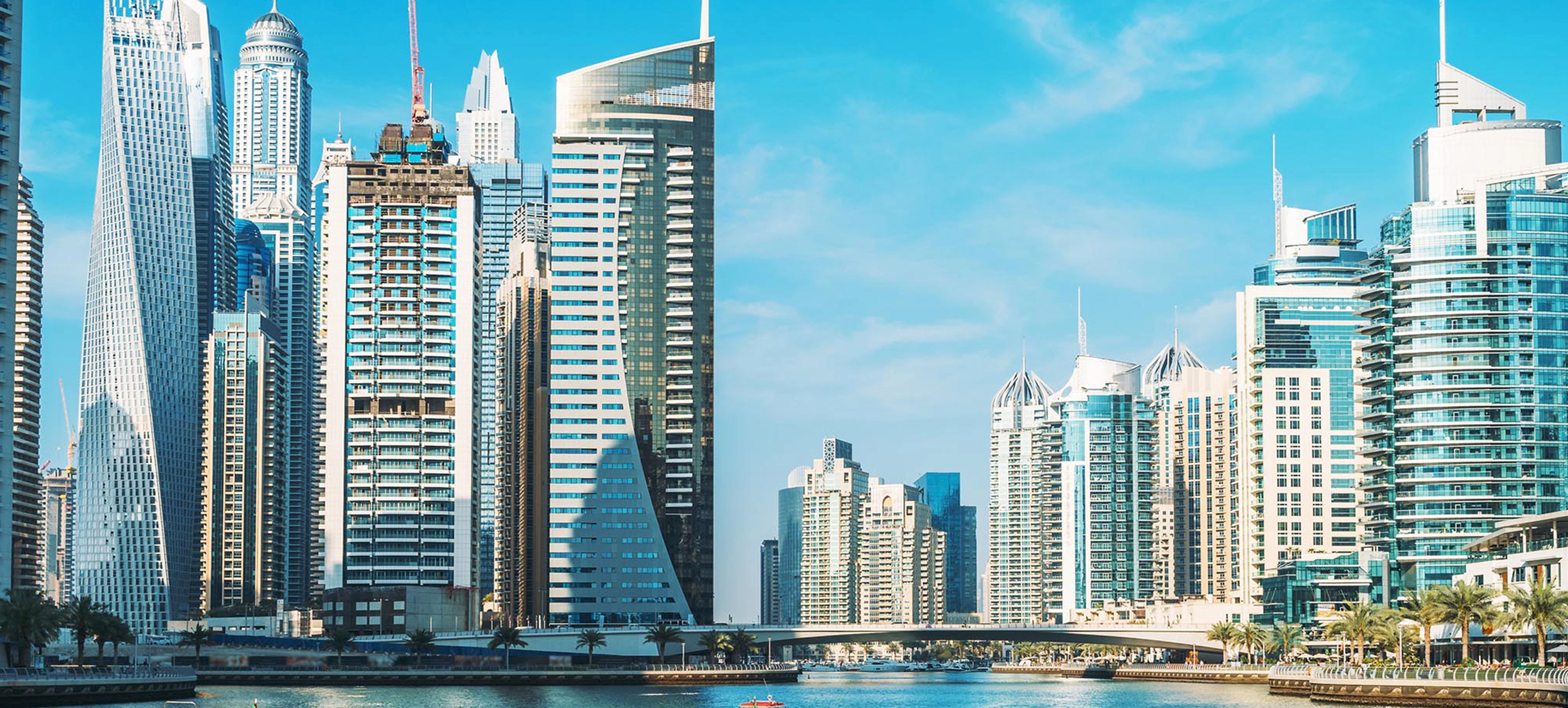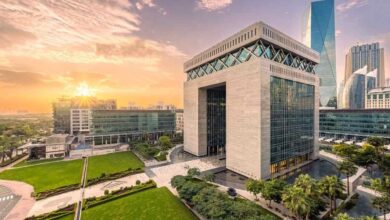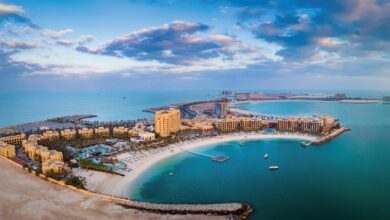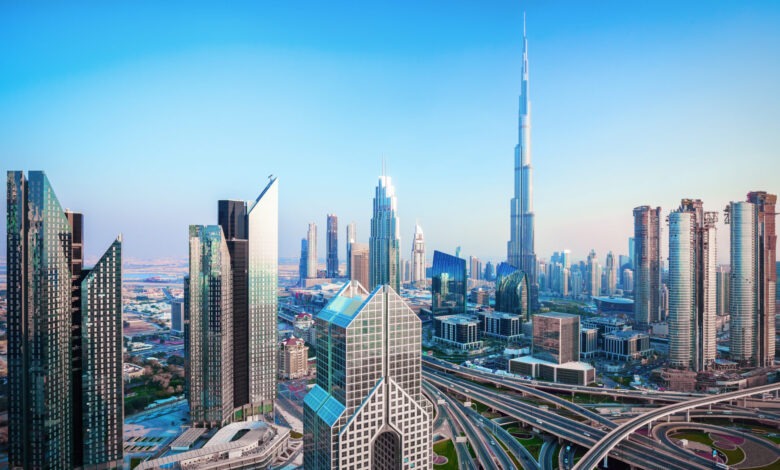
The United Arab Emirates (UAE) was established in 1971 and has since grown into one of the most dynamic nations in the world. Abu Dhabi serves as the capital and holds the majority of the country’s oil reserves, while Dubai is known for its tourism, trade, and innovation-driven economy. The nation’s strategic location at the crossroads of Europe, Asia, and Africa has further bolstered its status as a global trading hub.
With a population of nearly 10 million, of which over 85% are expatriates, the UAE is a melting pot of cultures. The country’s leadership, spearheaded by the rulers of its emirates, has invested heavily in infrastructure, technology, and sustainability, making it a leader in the region.
Standard of Living in the United Arab Emirates
The United Arab Emirates offers one of the highest standards of living in the world, attracting millions of expatriates annually. Its residents enjoy world-class healthcare, modern infrastructure, and unparalleled amenities.
Key Highlights:
Luxurious Lifestyle: From opulent residential communities to luxury malls and fine dining, the UAE epitomizes modern living.
Education and Healthcare: Top-tier international schools and state-of-the-art healthcare facilities are easily accessible.
Safety and Security: With strict laws and efficient law enforcement, the UAE is considered one of the safest countries globally.
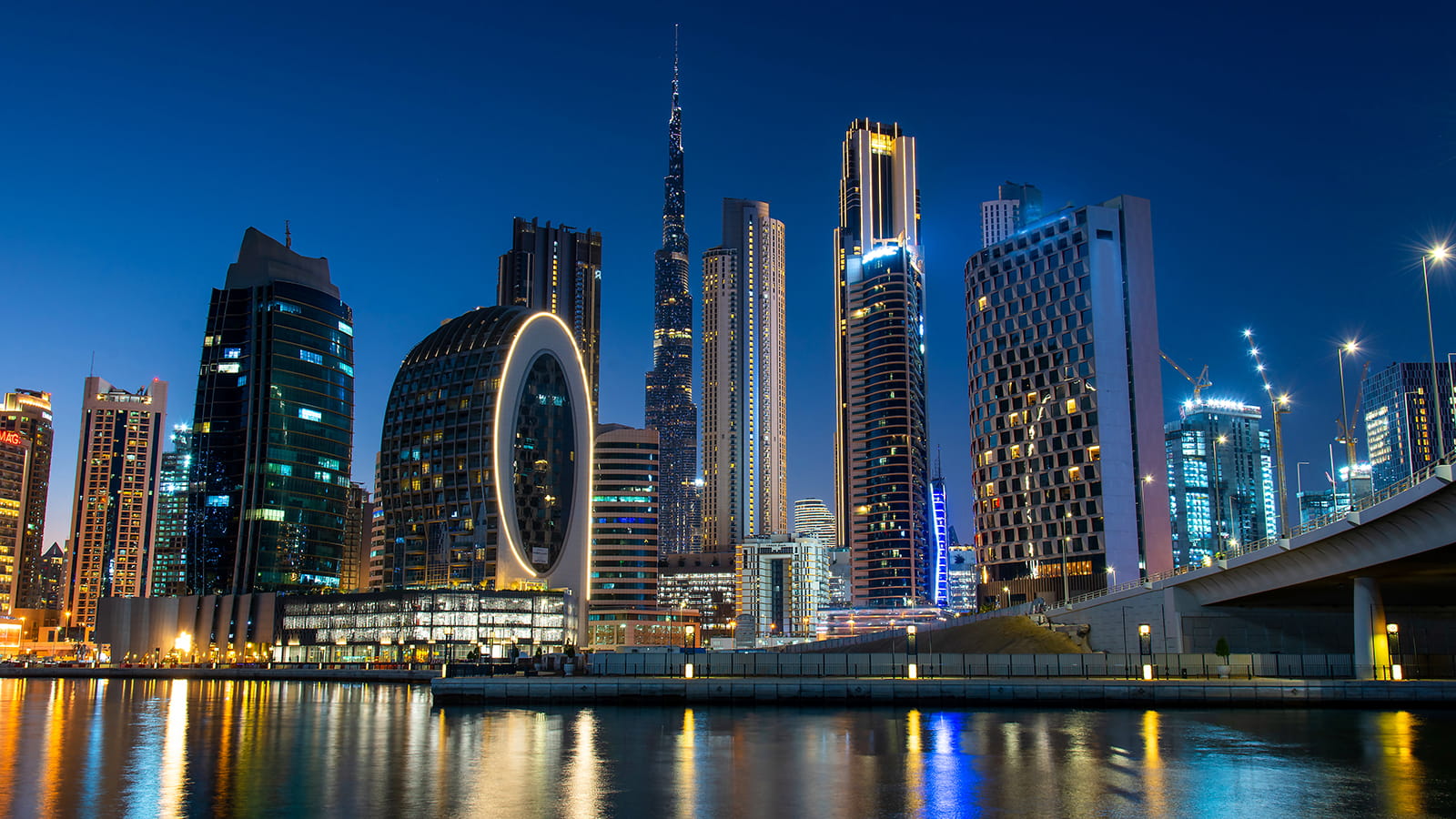
Recreation and Entertainment: Residents enjoy a plethora of recreational activities, from desert safaris to water sports, alongside cultural events and festivals.
Work-Life Balance: While the UAE is known for its work opportunities, its emphasis on leisure and lifestyle ensures a balanced and fulfilling experience for residents.
Personal Taxes in the United Arab Emirates
One of the UAE’s most attractive features is its tax-free regime for individuals.
No Personal Income Tax
Residents of the United Arab Emirates do not pay income tax, making it an ideal destination for professionals seeking higher disposable incomes. This tax-free policy extends to earnings, investments, and inheritance, further enhancing the country’s appeal for expatriates.
Value-Added Tax (VAT)
Although personal income is untaxed, a 5% VAT is levied on most goods and services. However, essentials such as healthcare, education, and basic food items are either zero-rated or exempt, ensuring affordability.
Corporate Taxes in the United Arab Emirates
Historically, the UAE was known for its tax-free environment for businesses. However, the introduction of corporate tax in 2023 reflects the country’s alignment with global tax standards while maintaining its competitive edge.
Corporate Tax Rates:
Standard Rate: A corporate tax of 9% applies to profits exceeding AED 375,000. This is one of the lowest rates globally, making the UAE highly attractive for businesses.
Free Zones: Businesses operating in designated free zones can still benefit from tax exemptions, provided they meet specific requirements, such as not conducting business within the mainland UAE.
Excise Tax: The UAE also imposes excise taxes on products harmful to health or the environment, such as tobacco, energy drinks, and sugary beverages, as part of its sustainability and public health initiatives.
Major Industries in the United Arab Emirates
The UAE’s economic success is driven by a diverse range of industries, ensuring resilience and growth.
- Oil and Gas
The United Arab Emirates is one of the world’s leading oil producers, with Abu Dhabi housing most of its reserves. Oil and gas contribute significantly to the nation’s GDP, though the country has made strides toward diversifying its economy.
- Tourism and Hospitality
The UAE is a global tourism hotspot, with attractions like the Burj Khalifa, Palm Jumeirah, and the Louvre Abu Dhabi. Dubai and Abu Dhabi consistently rank as top destinations for luxury travelers, while Sharjah and Ras Al Khaimah focus on eco-tourism and cultural experiences.
- Real Estate and Construction
The UAE’s skyline, dominated by architectural marvels, reflects the vibrancy of its real estate sector. Projects like Dubai Marina and Abu Dhabi’s Saadiyat Island showcase the country’s ambition in urban development.
- Financial Services
Dubai and Abu Dhabi are financial powerhouses in the Middle East, hosting world-class banks, investment firms, and stock exchanges. The UAE’s regulatory environment fosters innovation in fintech and blockchain.
- Logistics and Trade
Strategically located between Europe, Asia, and Africa, the UAE is a global logistics hub. Ports like Jebel Ali and airports such as Dubai International facilitate massive trade flows.

- Technology and Innovation
The United Arab Emirates is a leader in smart cities, AI, and blockchain. Initiatives like Dubai’s Smart City project and Abu Dhabi’s Hub71 underscore the nation’s focus on becoming a global tech hub.
- Renewable Energy
Masdar City in Abu Dhabi highlights the UAE’s commitment to renewable energy, with solar and wind projects driving sustainability.
Inflation and Cost of Living in the United Arab Emirates
Inflation Trends
Inflation in the UAE is influenced by global oil prices, housing costs, and imported goods. Recent years have seen moderate inflation, reflecting a stable economic environment.
Cost of Living
The cost of living in the United Arab Emirates can be high, especially in cities like Dubai and Abu Dhabi. Major expenses include:
Housing: Rents vary significantly based on location and property type. Premium areas like Downtown Dubai and Saadiyat Island command high prices.
Utilities and Groceries: Utility costs are generally affordable, while grocery prices reflect the nation’s reliance on imports.
Transportation: Public transport is efficient and inexpensive, but owning a vehicle can add to expenses.
While living costs are high, the UAE’s tax-free personal income and lucrative job opportunities often offset these expenses.
Property Tax, Services Tax, and Sales Tax in the UAE
Property Tax
The UAE does not impose a traditional property tax. However, property owners may pay:
Registration Fees: Typically 4% of the property value for registration with the Land Department.
Service Charges: Annual fees for maintenance and utilities in residential communities.
Value-Added Tax (VAT)
Introduced in 2018, VAT is levied at 5% on most goods and services. Essentials like healthcare and education are exempt or zero-rated to ensure affordability.
Excise Tax
The UAE imposes excise taxes on products deemed harmful to health or the environment, such as:
- Tobacco (100%)
- Sugary beverages (50%)
- Energy drinks (100%)

Types of Business Entities in the UAE
The United Arab Emirates offers several business structures to suit various needs, each with distinct features and benefits.
- Limited Liability Company (LLC)
An LLC is the most common business structure for onshore companies. It requires a minimum of two shareholders and offers limited liability protection. Recent reforms allow 100% foreign ownership in many sectors.
- Free Zone Companies
Free zones are specialized economic areas offering benefits like 100% foreign ownership, tax exemptions, and simplified customs procedures. Examples include Dubai Internet City and Abu Dhabi Global Market.
- Branch Office
Foreign companies can establish branch offices in the UAE to conduct their business activities without creating a separate legal entity.
- Sole Proprietorship
This structure is suitable for individuals providing professional services. The owner is personally liable for business obligations.
- Public and Private Shareholding Companies
These entities are ideal for large-scale operations. Public shareholding companies (PSCs) can list shares on the stock market, while private ones cater to specific industries.
Licenses to Start a Business in the UAE
Starting a business in the UAE requires obtaining a license tailored to the nature of operations.
- Commercial License
Issued for trading activities, such as import/export and general trading.
- Professional License
Required for service-based businesses, including consultancy, education, and healthcare.
- Industrial License
Granted to businesses involved in manufacturing or industrial activities.
- Tourism License
Essential for businesses operating in the travel, hospitality, or event management sectors.
Process:
- Choose a business structure and name.
- Secure initial approval from relevant authorities.
- Submit required documents, including a business plan, passport copies, and tenancy contract.
- Pay the applicable fees to obtain the license.

Opportunities for Expats for Business Growth in the UAE
- Diverse Industries
Expats can explore opportunities in booming sectors such as technology, tourism, and real estate. Free zones, in particular, are tailored to foreign investors.
- Access to Capital
The UAE’s banking system provides loans and funding options to support startups and SMEs. Networking events and government-backed initiatives like the Mohammed bin Rashid Innovation Fund also offer financial support.
- Networking and Support
Business councils, industry expos, and trade events provide platforms for expats to connect with potential partners and clients.
- Strategic Location
The United Arab Emirates’ position as a gateway to global markets enables expats to expand their businesses regionally and internationally.
Citizenship for Expats in the UAE
While obtaining UAE citizenship remains rare, recent reforms have introduced pathways for select expats.
Golden Visa
The UAE’s Golden Visa program grants long-term residency (5 or 10 years) to:
- Investors
- Entrepreneurs
- Specialized professionals
- High-performing students
Benefits:
- Renewability
- Family sponsorship
- Freedom to live, work, and study in the UAE
Citizenship
In 2021, the UAE introduced amendments allowing select expatriates to apply for citizenship. Eligibility extends to:
- Investors
- Scientists and professionals with outstanding contributions
- Artists and creatives
Why Register a Company in the United Arab Emirates
- Strategic Location
The UAE’s location at the crossroads of Europe, Asia, and Africa positions it as a gateway to some of the world’s largest markets. Its proximity to key trade routes makes it an ideal hub for international trade and logistics.
- Business-Friendly Environment
The United Arab Emirates is known for its ease of doing business, ranking high in global indices. It offers a stable political environment, modern infrastructure, and a transparent legal framework that protects investors’ interests.
- Tax Benefits
The UAE has long been a tax haven, with no personal income tax and a highly competitive corporate tax rate of 9%. Free zones provide further incentives, including 100% foreign ownership and exemptions from corporate and import/export taxes.
- World-Class Infrastructure
With state-of-the-art airports, seaports, and road networks, the UAE supports seamless business operations. It also boasts advanced digital infrastructure, making it a global leader in connectivity and innovation.
- Global Talent Pool
The UAE attracts a highly skilled workforce from around the world. Entrepreneurs benefit from access to talent in diverse industries, ranging from finance and technology to hospitality and construction.
How to Register a Company in the United Arab Emirates
- Choose a Business Activity
The first step is deciding on the type of business activity you intend to undertake. This determines the license and regulations applicable to your business.
- Select a Business Jurisdiction
Businesses can be established in one of three jurisdictions:
Mainland: Suitable for businesses targeting the local market, with recent reforms allowing 100% foreign ownership in most sectors.

Free Zone: Ideal for export-oriented companies, offering tax exemptions and full foreign ownership.
Offshore: Designed for international business activities without physical operations in the UAE.
- Register a Trade Name
Choose a unique trade name that complies with the UAE’s naming regulations. The name must not violate public morals or Islamic values and should accurately reflect your business activity.
- Obtain Initial Approvals
Approvals from the Department of Economic Development (DED) or the respective free zone authority are required to proceed with the registration process.
- Prepare Required Documents
The following documents are typically required:
- Passport copies of shareholders
- Emirates ID (for UAE residents)
- Memorandum of Association (MOA)
- Business plan
- Lease agreement for office space
- Apply for a Business License
Submit the necessary documents to the relevant authority to obtain your business license. The type of license—commercial, professional, or industrial—depends on your business activity.
- Open a Bank Account
Establishing a corporate bank account is essential for business operations. The UAE offers a variety of banking options tailored to business needs.
Cost to Register a Business in the United Arab Emirates
The cost of registering a business in the UAE varies depending on the chosen jurisdiction and type of business. Key expenses include:
- Licensing Fees
Mainland business licenses typically cost AED 15,000 to AED 25,000 annually.
Free zone licenses range from AED 10,000 to AED 50,000, depending on the free zone and business activity.
- Office Space
Renting office space is mandatory for mainland businesses, with costs varying based on location. Free zones often offer flexible office solutions at reduced rates.
- Registration and Administrative Fees
These include name registration, initial approvals, and visa processing fees, which can total AED 5,000 to AED 10,000.
- Additional Costs
Other expenses may include legal consultation, document notarization, and hiring local agents if required.
Relation with Other Countries of the United Arab Emirates
The UAE maintains strong diplomatic and economic relations with countries worldwide, enhancing its status as a global business hub.
- Trade Relations
The UAE is a major player in global trade, with free trade agreements (FTAs) with countries across the Gulf Cooperation Council (GCC) and beyond. Its trade relations extend to key economies such as China, India, the US, and the EU.
- Investment Treaties
The UAE has signed numerous bilateral investment treaties (BITs) to protect foreign investors. These agreements foster confidence among international businesses.
- Membership in Global Organisations
As a member of the World Trade Organisation (WTO) and other international bodies, the UAE actively participates in shaping global trade policies and standards.
- Diplomatic Relations
The UAE’s foreign policy emphasizes peace and cooperation, making it a trusted partner in international affairs. Its diplomatic efforts have bolstered its reputation as a stable and reliable destination for investment.
Any Other Taxes in the United Arab Emirates
While the UAE is known for its tax-free environment for individuals, certain taxes are applicable:
- Corporate Tax
Introduced in 2023, a 9% corporate tax is levied on profits exceeding AED 375,000. Businesses in free zones are exempt, provided they meet specific criteria.
- Value-Added Tax (VAT)
The United Arab Emirates imposes a 5% VAT on most goods and services, ensuring a steady revenue stream for the government without burdening businesses or residents.
- Excise Tax
Excise taxes are applied to products harmful to health or the environment, including:
- Tobacco (100%)
- Sugary beverages (50%)
- Energy drinks (100%)
- Customs Duties
A 5% customs duty is levied on imported goods, though exemptions exist for free zone businesses and specific industries.
Social Security in the United Arab Emirates
The United Arab Emirates provides a well-structured social security system for its citizens, ensuring financial stability and access to critical services.
Key Features of Social Security:
Retirement Benefits: Emirati citizens contribute to a pension fund, which provides financial security after retirement.
Unemployment Assistance: The government offers limited unemployment benefits to ensure temporary financial support during job transitions.
Healthcare: Citizens enjoy free access to public healthcare services, while expats typically rely on employer-provided health insurance or private plans.
Housing and Welfare Programs: The United Arab Emirates government supports citizens with housing grants, loans, and welfare initiatives to improve living standards.
While social security benefits are primarily targeted at Emirati citizens, expats benefit from a business-friendly environment, tax-free income, and mandatory employer-provided health insurance.
Weather, Climate, and Regional Safety in the UAE
Weather and Climate:
The United Arab Emirates has a desert climate characterized by hot summers and mild winters:
Summer (June-September): Temperatures can soar above 45°C, accompanied by high humidity. Most activities move indoors, with air-conditioned spaces being the norm.
Winter (November-March): Temperatures range from 12°C to 25°C, offering pleasant weather ideal for outdoor activities, festivals, and tourism.
Rainfall: Occasional rain occurs during the winter months, though it remains minimal.
Despite the harsh summer, modern infrastructure ensures comfort year-round, with shaded walkways, air-conditioned public spaces, and water conservation technologies enhancing livability.
Regional Safety and Security:
The UAE is one of the safest countries in the world, offering a secure environment for residents and visitors alike:
Low Crime Rate: Stringent laws and efficient law enforcement contribute to minimal crime levels.
Proactive Emergency Services: The United Arab Emirates has well-equipped police, fire, and medical services to respond swiftly to emergencies.
Political Stability: The UAE’s leadership ensures a stable and peaceful environment, bolstered by strong diplomatic ties with other nations.
Traffic and Road Safety: Advanced road networks and strict driving laws aim to reduce traffic accidents, though challenges remain in ensuring compliance.
Passport Power of the United Arab Emirates
The UAE passport is one of the most powerful in the world, ranked among the top globally in terms of travel freedom.
Benefits of a UAE Passport:
Visa-Free Travel: Holders of a United Arab Emirates passport enjoy visa-free or visa-on-arrival access to over 180 countries, including the Schengen Area, the UK, and Japan.
Global Recognition: The UAE’s strategic alliances and diplomatic relations ensure its passport is highly respected and widely accepted.
Ease of Business and Investment: A strong passport facilitates international business, trade, and investment opportunities for Emirati nationals.
Scope of Education, Growth, and Other Opportunities in the UAE
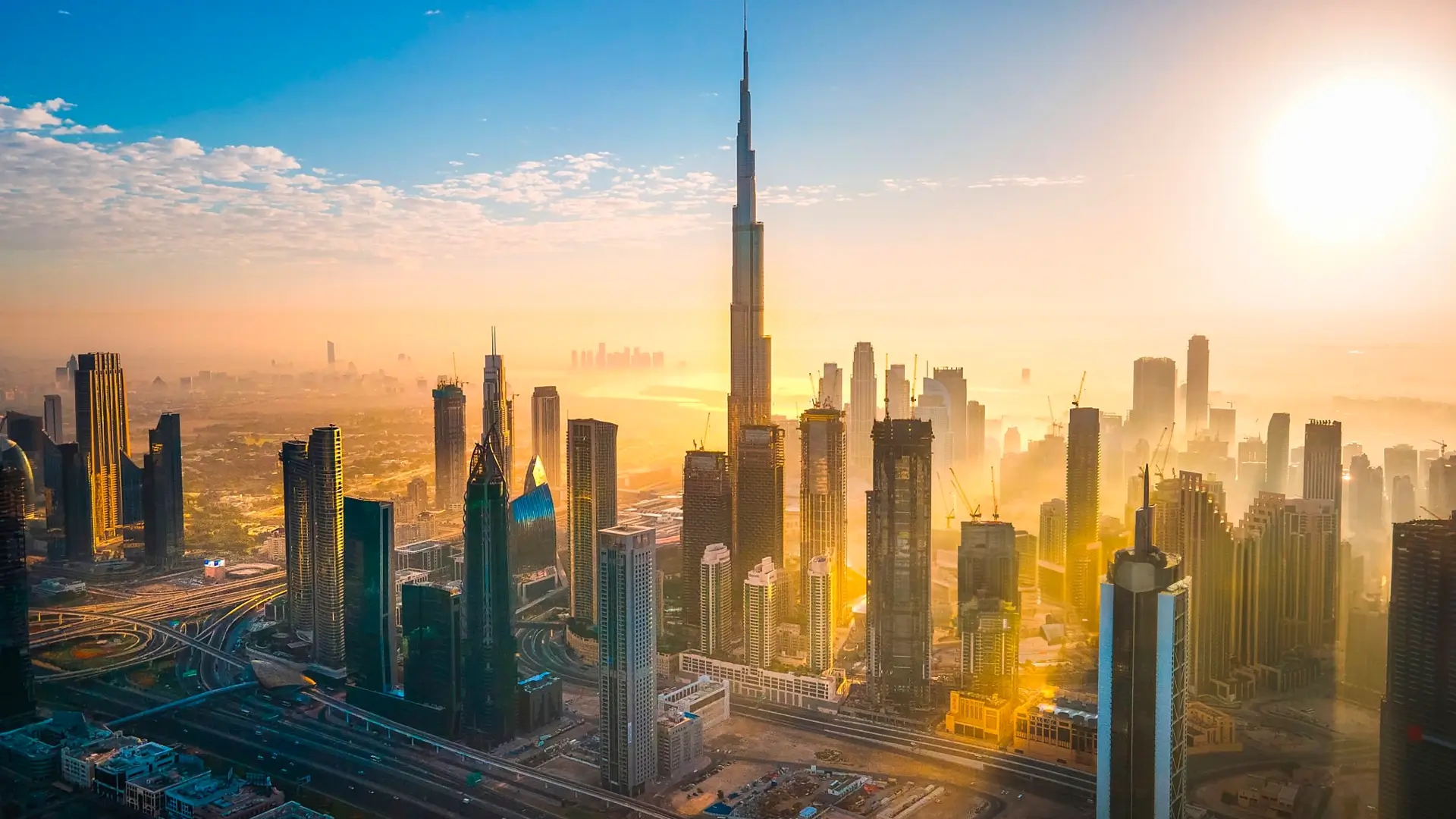
The UAE has made significant strides in education, professional growth, and lifestyle amenities, making it a global hub for talent and innovation.
Education:
Primary and Secondary Education: The United Arab Emirates offers a mix of public and private schools, with curriculums including British, American, Indian, and International Baccalaureate (IB) systems. Public schools are free for Emirati citizens, while expats typically enroll their children in private institutions.
Higher Education: The country hosts prestigious universities such as the American University of Sharjah, Khalifa University, and branch campuses of international institutions like NYU Abu Dhabi.
Scholarships and Research Opportunities: The United Arab Emirates government encourages advanced studies and research through scholarships and funding for Emirati students.
Career Growth and Professional Development:
Thriving Industries: Key sectors like finance, technology, healthcare, and construction offer abundant job opportunities.
Entrepreneurship Support: Government initiatives like the UAE StartUp program and free zones facilitate business setup and innovation.
Work-Life Balance: With tax-free income and a focus on leisure, residents enjoy a high standard of living and opportunities to pursue personal interests.
Lifestyle and Recreation:
Cultural Diversity: The UAE’s cosmopolitan society allows residents to experience a mix of traditions, festivals, and cuisines from around the world.
World-Class Infrastructure: From luxury shopping malls to state-of-the-art healthcare facilities, the United Arab Emirates caters to all aspects of modern living.
Recreational Opportunities: Residents have access to activities ranging from desert safaris and beach outings to world-class entertainment events.


